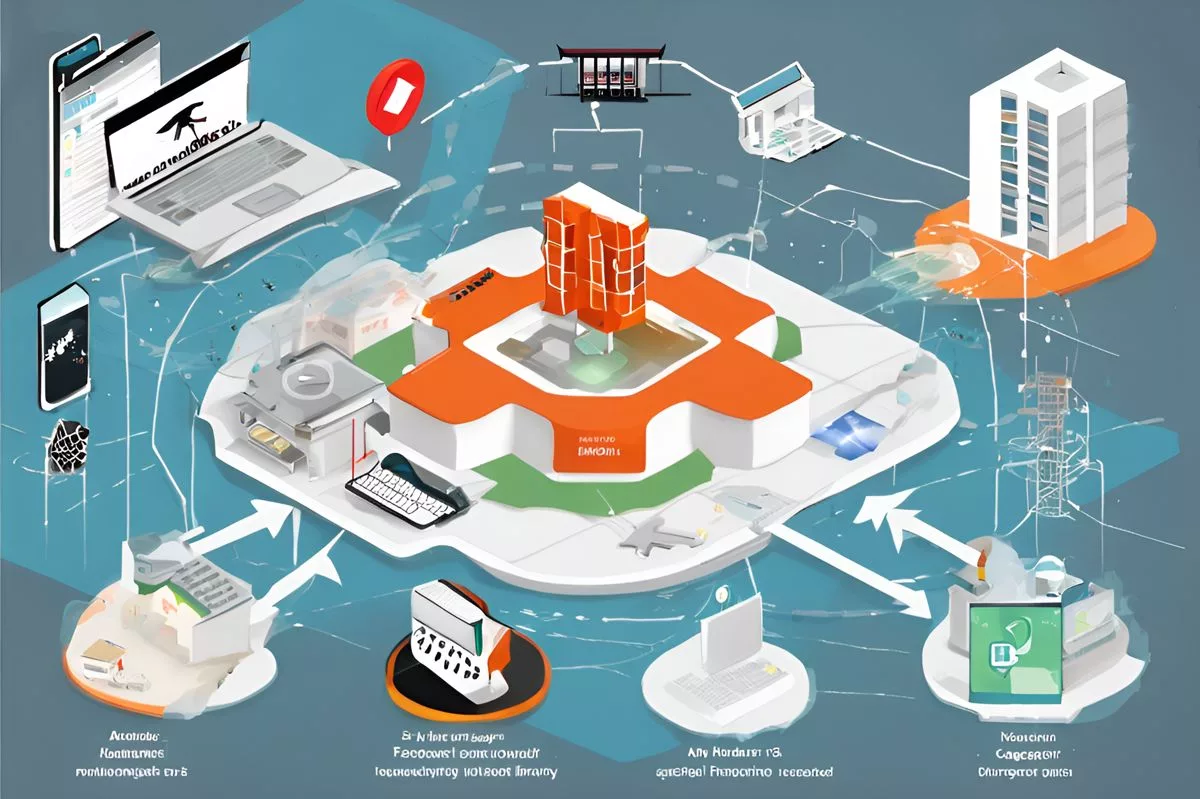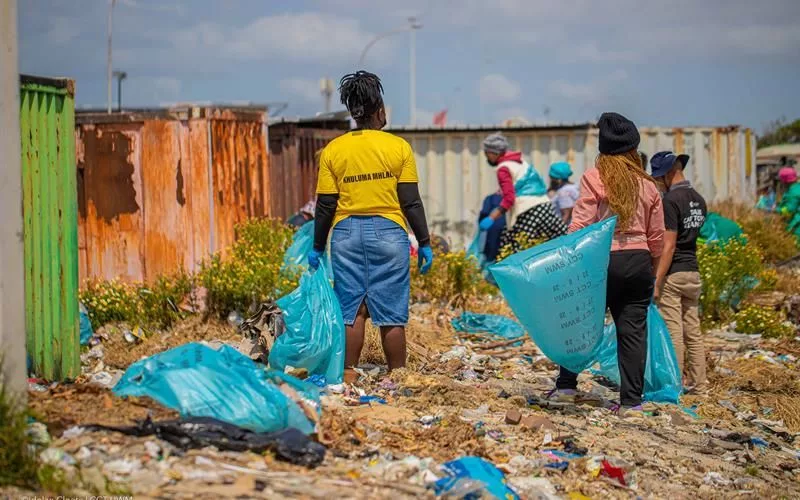Dr. Elias Sithole, head of South Africa’s National Disaster Management Centre, proposed an aggressive plan to overhaul the country’s disaster management system in response to the increasing frequency of disasters due to climate change. The plan involves creating a new framework for disaster management, improving national risk information platforms, and strengthening collaborations with critical stakeholders. These changes promise a more resilient South Africa, and Dr. Sithole’s leadership is crucial in achieving this paradigm shift.
What is the new approach to disaster management in South Africa?
Dr. Elias Sithole, head of the National Disaster Management Centre, has proposed an assertive plan to overhaul South Africa’s disaster management system to respond to the rising frequency of disasters due to climate change. This plan involves shaping a new framework for disaster management, enhancing the national risk information platforms, and strengthening collaborative efforts with critical stakeholders. The suggested changes promise a more resilient South Africa.
On a vibrant Wednesday morning on February 21, 2024, a sense of anticipation filled the South African Parliament. The Portfolio Committee on Cooperative Governance Traditional Affairs (COGTA) was in the throes of a riveting discussion with Dr. Elias Sithole, head of the National Disaster Management Centre (NDMC). This conversation signified a significant milestone in the path towards the reformation of South Africa’s disaster management strategies.
Shaping a New Framework for Disaster Management
Dr. Sithole, who serves as the Deputy Director-General for the NDMC under COGTA’s umbrella, delineated an assertive plan to the committee members. His objective was to improve the disaster management system drastically. He argued that such an overhaul was a necessary reaction to the rising frequency of disasters, including floods, droughts, and fires. He linked these disasters to the perpetual menace of climate change, highlighting the need for a better response system.
However, this plan does not exist independently. It is in sync with the recommendations by the African Peer Review Mechanism (APRM) on disaster management. The APRM, a voluntary self-monitoring instrument for member states of the African Union, was established in 2003. This mechanism promotes mutual accountability and the sharing of ideal practices among AU heads of state. Notably, South Africa was the pioneer, becoming the first country to be peer-reviewed on ‘state resilience to shocks and disasters’.
Enhancing the National Risk Information Platforms
Since his leadership in 2022, Dr. Sithole has been actively involved in improving national risk information platforms. A significant part of this mission involved transforming a national web-based platform into a functional tool that continually updates risk information data. This platform currently plays a crucial role as a resource for provincial and district disaster management bodies.
Additionally, the NDMC has painstakingly developed a catalog of primary risk profiles concerning South Africa’s primary hazards – drought, flood, fire, and windstorm. This repository, open for national access, serves as an incredibly valuable guide for contingency planning.
Strengthening Collaborative Efforts in Disaster Management
Dr. Sithole then listed the steps taken to foster cooperation and dialogue with critical stakeholders. He referred to the recent pact between the NDMC and SA Weather Service as an example. This agreement necessitates a monetary commitment and promises the creation of new data products to monitor the impacts of climate variability and change.
Dr. Sithole further mentioned a wide range of international collaborations with partners such as Lesotho, the UN Office of Outer Space Affairs, the UNESCO Indian Ocean Tsunami Warning and Mitigation System, and the International Charter for Space and Major Disasters.
Moreover, the NDMC also developed a national disaster management research agenda in 2022. This initiative aims to bridge the existing gaps and guide policy decisions. Dr. Sithole posed a thought-provoking question, “Why does it take so long for state agencies to respond when disasters happen, and NGOs are often the first on the scene?” This question highlights the need to reform the disaster management system further and reinforce its response capabilities.
A Paradigm Shift in Disaster Management
The Chairperson of the portfolio committee, Mr. Fikile Xasa, expressed appreciation for the enlightening dialogue. He assured that the discussion would contribute to the committee’s legacy report for consideration by the seventh Parliament.
This meeting symbolized not just a system overhaul but a necessary shift in disaster management’s overall perception. The suggested changes, rooted in a mix of collaboration and self-monitoring, promise a more resilient South Africa in the face of future disasters. As the country progresses, it is evident that its future is secure with leaders like Dr. Sithole at the helm.
What is the African Peer Review Mechanism?
The African Peer Review Mechanism (APRM) is a voluntary self-monitoring instrument for member states of the African Union. It was established in 2003 to promote mutual accountability and the sharing of ideal practices among AU heads of state.
What is the role of the National Risk Information Platforms in disaster management?
National Risk Information Platforms play a significant role in disaster management as a resource for provincial and district disaster management bodies. Dr. Sithole has been actively involved in improving these platforms since his leadership in 2022, transforming a national web-based platform into a functional tool that continually updates risk information data.
Who are some of the critical stakeholders involved in disaster management in South Africa?
Critical stakeholders in disaster management in South Africa include the SA Weather Service, Lesotho, the UN Office of Outer Space Affairs, the UNESCO Indian Ocean Tsunami Warning and Mitigation System, and the International Charter for Space and Major Disasters.
What is the national disaster management research agenda?
The National Disaster Management Research Agenda is a 2022 initiative developed by the NDMC to bridge existing gaps and guide policy decisions in disaster management. The agenda aims to reinforce the disaster management system’s response capabilities and address the question of why state agencies take so long to respond when disasters happen.
What is the significance of Dr. Sithole’s leadership in achieving a paradigm shift in disaster management in South Africa?
Dr. Sithole’s leadership is crucial in achieving a paradigm shift in disaster management in South Africa. His assertive plan proposed an aggressive plan to overhaul South Africa’s disaster management system, improve the national risk information platforms, and strengthen collaborations with critical stakeholders, promising a more resilient South Africa in the face of future disasters.
What is the Portfolio Committee on Cooperative Governance Traditional Affairs (COGTA)?
The Portfolio Committee on Cooperative Governance Traditional Affairs (COGTA) is a committee in the South African Parliament responsible for overseeing the Department of Cooperative Governance and Traditional Affairs. They were in discussion with Dr. Elias Sithole, head of the National Disaster Management Centre, on his assertive plan to overhaul South Africa’s disaster management system.










